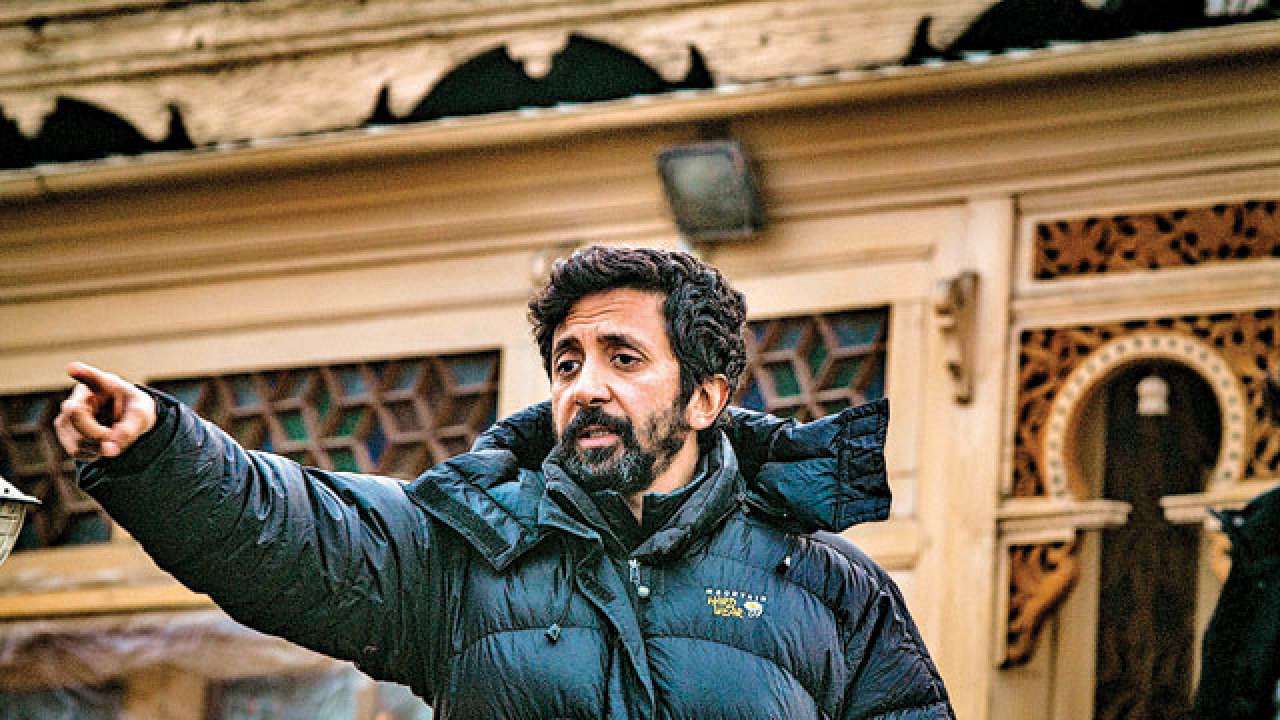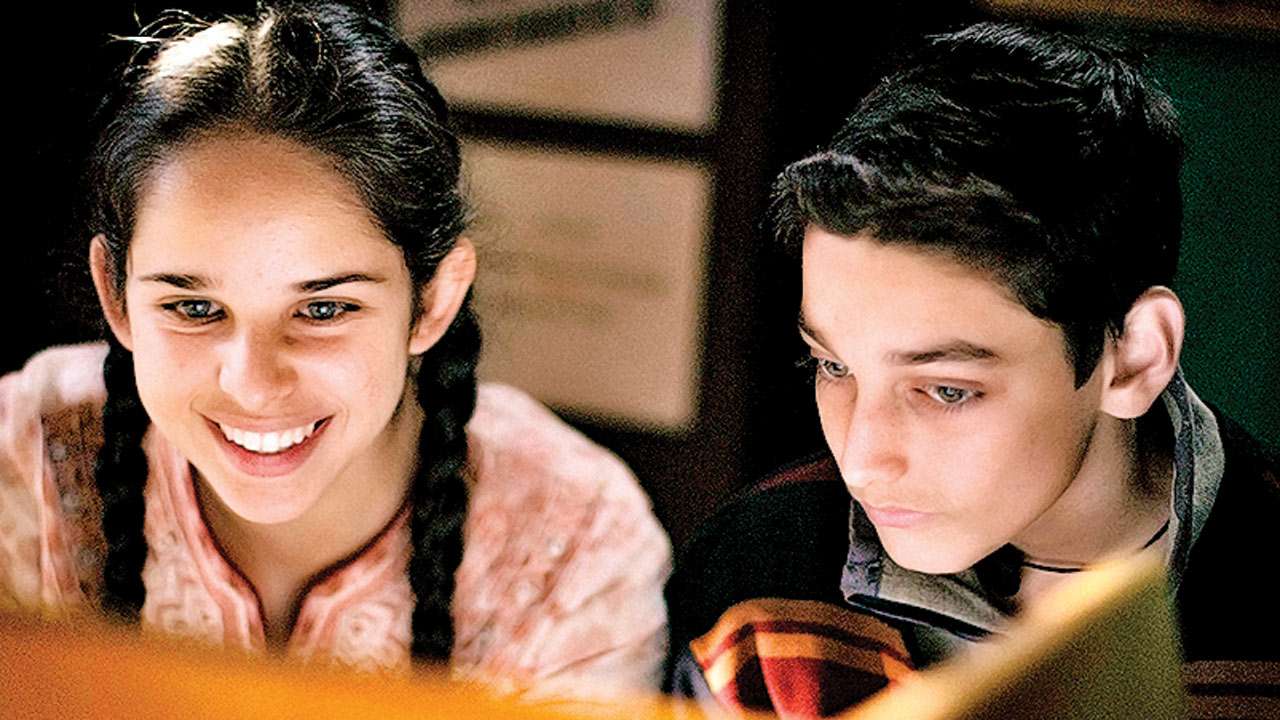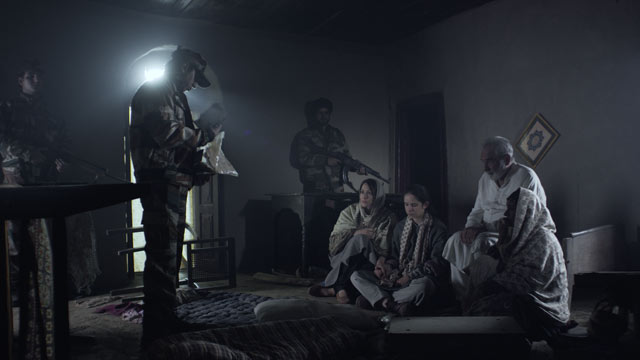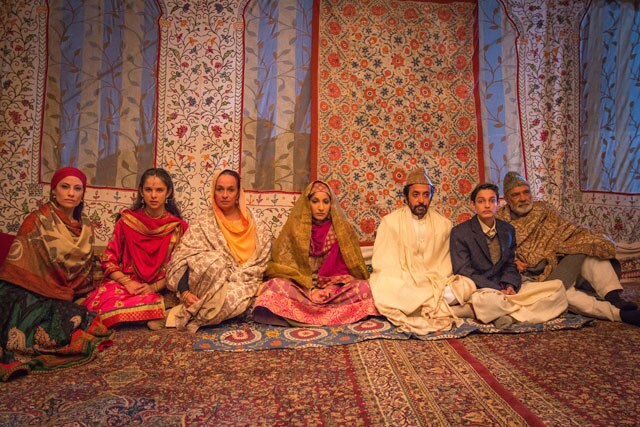
Your guess is as good as mine. I repose great trust in FCAT which has agreed in principle to give us a U/A certificate so we hope it'll all come through. They've asked for some cuts which are particularly heartbreaking because one of them is my own scene (I'm debuting in this film) in which I was told by many I was quite good.
I don't think so. Our audiences are very different. We're very clear who will like our film and come for it. The kind of audience which will watch that film won't go for ours and vice-versa.
My film has gone back and forth between the CBFC and the Film Certification Appellate Tribunal (FCAT) thrice. Every time the FCAT orders the CBFC to issue me a certificate they seem to find new issues with the film to stall its clearing. In fact, the revising committee never gave us a proper hearing. I hope they now adhere to the last order. I'm baffled a film about empathy, compassion and the human spirit is having to face this problem

(Still from No Fathers In Kashmir)
They've asked for quite stupid things actually. They asked me to remove mention of the army. And we argued that will mean there is no army in Kashmir. Then they said: 'Take it down by 10%.' (Laughs) You can either mention it or not. What is this take it down by 10%? In one scene the army is doing a search and seizure operation and I was told to reduce its impact. I tried to explain that we are only showing them doing their job. But they were adamant, 'Take that out.'
They wanted a board on a graveyard which says: 'Martyred in the custody of the Indian armed forces,' removed. Now such real boards exist in martyr graveyards across Kashmir. Locals think of those who die fighting the excesses of Indian armed forces as martyrs and we think of our soldiers who die as martyrs. Without saying one is right and the other wrong, we have to look that reality in the eye. Citizens of any land who find their grievances not being addressed will want to pick up guns or stones.
I've never understood why the censor board has to act like the spokesperson for the armed forces or the ruling dispensation or defend national integrity or sovereignty. None of these actually need defending. And least of all from the censors which have time and again gone beyond their brief. The cuts in my film are all about pandering to the censor board's sensibilities and not about the impact of the film at all.

If I'd gone to court, every single cut would have been thrown out. But my film would have been buried for a minimum of six months. You know how long things take in the courts...
No. This is the blind spot we've carefully cultivated vis-a-vis Kashmir. Censorships and limiting of access to the region means people of the country don't know much about Kashmiris. So if you don't know of all the atrocities and human rights violations going on in the valley, it doesn't lead to any support/protests. If anything happens in Jharkhand or Tamil Nadu people in other parts of the country react to it. The media, activists and even ordinary citizens all speak up. In Kashmir the state is the only one talking and it calls it looks at this 'integral part of India' as the 'other' and all Kashmiris as aliens. Attempts to control what information and narratives go out is mere limiting access. If the average Indian gets to know the real Kashmir they will want to question the narrative the state is peddling.

For this reason only. Because I continue to talk about issues that they want to keep out of the public eye. What does the state want to hide if there are no human right violations? Why are monitoring bodies not allowed to go into Kashmir and independently investigate? For example, why is there no attempt to prove/disprove the allegations on mass graves, torture and enforced disappearances in the Valley? In the 30+ years of conflict why have only 2-3 officials actually been booked for their offences? Most files just pile up the in the MoD without approval. Look at AFSPA or PSA which allows the state to incarcerate kids as young as 8-14 without trial for as long as two years.
What can I say? I've made a film about two 16-year-olds falling in love and having their fast heartbreak. It is supposed to help us identify with this universal feeling. It must take considerable creativity to find fault with a premise as innocent as this. As for the fraternity, apart from Bhatt saab (Mahesh Bhatt) who tore into the censors for what they are doing or say a Swara Bhaskar not many people come forward to take on those in power. I'm going to resist going deeper into this one as I want to pick and choose my battles.
If the levels of outrage are as shrill as we are made to believe then someone from the community needs to mainstream it by making films or writing books on the issue. I really don't know why that has not happened. The alienation of a people caught in the middle of a geopolitical conflict where two nuclear-armed nations face-off was what caught my attention and I have made my film on the gross human rights violations I witnessed in the Valley. No one is denying the persecution and exodus of the Pandits or saying it is not as important as the issue I am handling. All I feel is that it will be better done by someone better positioned to do so.
There are extremes to every ideology. The problematic emerges from state institutions abdicate their duty and fawn in front of those in power. Civlisations are not destroyed by armies or those in power but by the apathy of the sensible who either watch things happen and don't act or worse look away. It surely is no coincidence that Ayodhya, the rise of armed insurgency in the Kashmir Valley or the liberalisation of the economy have more or less begun around the same time and look at how this triumvirate has played out bringing India to the point where it is. Hypercapitalism (divorcing the human being from the means of the production), hypernationalism (coming from a sense of foisted victimhood of the majority community) and the hyper-militarism in looking at issues of conflict in Kashmir or with Pakistan. This is now not about the radical Left or Right but about the failure of the nation-state and its institutions in doing the job they were created for. Apart from the EC and SC (which have also faltered on some occasions) most have been reduced to ghosts of what they were meant to be. Without checks and balances in place no surprise that messianic larger-than-life figures loom large on the sociopolitical horizon. We've not only unofficially converted our presidential democracy into a presidential one where the president isn't accountable to the legislature. We now have even have a Chief of Armed Froces make political statements, something unheard of before. A Major who strapped a Kashmiri to a jeep and paraded him through a village was honoured with a medal. Is this going to help resolve the alienation and hurt of the people in the Valley?
It would have to be her attention to detail and her tenacity to keep going at it till it gets done the way you want it. I'd like to think that like her even I set myself impossibly high standards and even if I don't meet them my work gets better.
Are you trying to ask if there was anything else apart from being hammered out of shape? (Laughs) See I've realised institutions and me do not get along and to make it worse I never want to fit in. I'm also in touch with the sensitive sensible creative feminine side within. So being cooped in a school with 600 boys made me miserable. The English Public school and its role in perpetuating toxic masculinity needs to really be gone into.
I joined London Film School very late when I was in my 30s. I was doing theatre and found myself always short of money despite trying to run a business (the first to bring non-linear editing to India) on the side. My dad nudged me to move to films. So I went there trying to learn the ropes. Once I knew the basic of how to load a cam, shoot and edit I felt why should I waste money living in expensive London and also pay fees. I decided to use that money to make my first film.
Yeah, I knew nothing. I had written the first thing that came to mind. Irrfan read and said yes. When I told him I can't pay you he took a two-week pause but finally agreed. As for a crew, this was before Facebook, LinkedIn and all that. I put up a notice on a website called Shooting People and said that I couldn't pay either fees or airfare. I'd thought no one will respond but there were so many that I was horrified. And unlike the newbies, I expected almost all of them had almost 10+ years experience more than me and many Europeans among them. It rained, our tents were flooded and we had to rush the shoot but it was one giant learning curve.
I mist want to do that. Right now I want to focus a bit more on my acting and work under others. In terms of making films, I would want to someday make my own musical. Something which is comic, fun, lighter and less angsty.
I really liked Kanu Behl's Titli and Chaitanya Tamhane's Court. His audacity to pull off something so different was amazing. Imagine creating so much tension often even without the camera moving. There's also Amit Masurkar's Newton which I have only seen in bits and pieces but found mindblowing. These are interesting times when new filmmakers are trying out new styles of storytelling and shining a torch on issues and regions we don't even know about.
For me, a web series is not about short cuts. It's like doing six or twelve feature films. We need to make something which will stay robust and stand the test of time. So many of the web series seem like they've been made to fill internet space. There is a lot of clutter out there. But if you see the way a show like Game of Thrones is made years are spent on getting it right in creating a whole new world, with details, costumes and more. If I do a web series it would have to be like that. I do have a couple of ideas especially one for historical which looks at the journey of this land into becoming the place it is today.